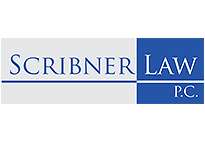BY MICHAEL S. GLASSFORD
(Please understand that the answers to these questions are general in nature and may not cover every individual situation.)
No one ever expects to be charged with driving under the influence of alcohol or drugs (DUI). For most people, the arrest is a shattering experience. There are the flashing lights, and the officer at the car door. First come the questions and the field sobriety tests, then the handcuffs and the trip to the station for booking. These experiences are followed by more questions and warnings and finally by being asked to blow on an intoxilizer machine, or having your blood drawn. The final humiliations are either booking into jail to sleep it off and wait for court, or a call to friend or loved one to post bail. None of these are pleasant experiences.
None of the people who are arrested for driving under the influence of alcohol intend to engage in conduct that will result in their arrest. Most don’t realize that they have had enough to drink to put them over legal limits. Sometimes the difference between an arrest and being released without charges filed is what you had for lunch, and how much you weigh.
If you have been arrested, what should you expect next? If you have been released on bail, you will be given a court date when you are required to appear for an arraignment. An arraignment is a hearing where you enter a guilty or not guilty plea. If you plead not guilty your case will be set for a pretrial conference where you or your attorney can meet with the prosecutor and discuss the case. If you plead guilty, the case will immediately proceed to sentencing unless you invoke your statutory right to have sentencing occur in a period between two and forty-five days after entry of plea.
The consequences and penalties for driving under the influence of alcohol in Utah may include the following for a first conviction. You will be sentenced to 180 days in jail with all but two days suspended. You will be ordered to pay fines and fees totaling as much as $1850.00, plus court security fees. (Fines and fees actually imposed are usually somewhat lower but still substantial). You will face the loss of your driving privilege for 120 days. You will be ordered to have an ignition interlock device installed on your vehicle. You will be forbidden to drive any vehicle that does not have an ignition interlock device on it. You will be required to have a substance abuse evaluation, and to follow through on any recommended treatment. You may be placed on probation with a private probation provider who will require you to pay for probation. You may be required to submit to random drug or alcohol tests. After regaining your driver’s license you will be required to obtain expensive SR22 automobile insurance.
How can a lawyer help? In a DUI case an experienced attorney can help in several ways. The attorney can appear with you at all court dates. The attorney can help you request a driver’s license hearing to see if your driving privileges can be maintained. (This hearing must be requested within 10 days of your arrest.) The attorney will help you enter a not guilty plea, and will set your case for a pretrial. Counsel can file an “entry of appearance of counsel”, and a “request for discovery” that will require the prosecutor to make all police reports and information on the case available to the defense. Your attorney can help you make decisions about what to do in the case. The attorney will evaluate the evidence and see whether there is a basis to claim that your arrest was illegal or improper. Counsel can negotiate with the prosecutor, and in many cases can negotiate amendment of the charges to offenses that do not have all of the consequences and penalties set forth above. Counsel can represent you at sentencing hearings and other hearings to make sure that the process is fair. Finally in appropriate cases, your attorney can help you take your case to trial where a judge or jury can decide guilt or innocence.


Sorry, the comment form is closed at this time.